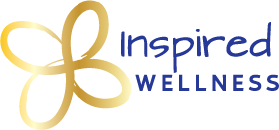Reclaiming Power Through Knowledge: How Learning About Mental Illness Can Transform Your Journey
By: Marissa Pollet
When you’re struggling with a mental health challenge, it can often feel like you are at the mercy of something invisible, something you can’t fully understand, predict, or control which is daunting. That uncertainty can fuel feelings of fear, shame, and helplessness. But there’s a
powerful tool that can help change that: education.
Learning about mental illness and understanding the symptoms, causes, treatment options, and coping strategies doesn’t just fill your mind with information, it shifts the relationship you have with your illness. The result in this shift is power. The power that you are in the driver seat and will be facing your challenges with a toolbox of education.
How Education Empowers You
• Provides clarity. Understanding the nature of your symptoms can replace confusion with clarity. You realize you're not "broken"; you're dealing with something real, often common, and treatable.
• Reduces stigma. Knowledge breaks the myths and shame often associated with mental illness. Instead of internalizing blame, you begin to see mental health challenges as part of the human experience. It’s the notion that you are not alone and the challenges you face are more common than you realize.
• Increases self-compassion. When you know that what you're going through has biological, psychological, or social roots, it's easier to practice kindness toward yourself rather than judgment. You will be gentle to yourself as you begin to unravel thought processes and setback along the way.
• Equips you for action. When you understand your condition, you can make informed choices about therapy, medication, self-care, and support systems. Staying in the driver seat and acting as a self-advocate is empowering. You turn the tables to “I am in control of my journey and mental health challenges”
• Builds resilience. Knowledge arms you with coping skills, helps you recognize early warning signs, and strengthens your ability to bounce back from setbacks.
Taking Back Control: Why Knowledge Is Key
When you don’t understand what’s happening to you, it’s easy to feel like you don’t have control in your own life. However, understanding your mental health condition gives you power. It turns you from a passive individual into an active participant in your healing journey.
Here’s how knowledge helps you take back control:
• Identifying patterns. Learning about your mental health allows you to recognize triggers, symptoms, and warning signs sooner. Take the time to write down some of your triggers and when you experience them. How are the patterns correlated and what can you do lessen the frequency of extinguish them all together? Be your own detective.
• Choosing effective treatments. Education about therapy types, medication options, and lifestyle strategies lets you choose what feels right for your healing. A specific approach to your mental illness along with the guidance of a professional is a power method towards lifelong change. Don’t be afraid to speak up with what seems to work best for your needs.
• Setting realistic goals. Understanding the nature of your illness helps you set achievable, meaningful goals, avoiding the cycle of unrealistic expectations and disappointment.
• Communicating better. When you can name and explain what you’re going through, it’s easier to ask for help and advocate for your needs with friends, family, and professionals. When those around you understand your struggles, it’s easier to help provide the best means of help. If you feel your mental challenges are affecting your life or need further support, a qualified professional is eager and ready to help.
Applying What You Learn: From Knowledge to Change
Once you begin the journey of understand your struggles, you can start applying what you know to create real, sustainable change in your life.
Here’s a simple way to think about the process:
Learn: Read books, listen to podcasts, attend workshops, talk to professionals, join support groups, and seek credible resources.
Reflect: Apply what you’ve learned to your own experiences. How do your symptoms or patterns fit the information you've gathered? What resonates with you that you can apply to create change?
Plan: Based on your learning, make a realistic plan for treatment, self-care, and growth. This is a great start towards growth and a tool that you can share with a professional of what you have tried. Make notes for yourself you can access and re read when needed.
Act: Start with small, consistent steps toward change. Progress is made day by day. Don’t overwhelm yourself, apply what you have learned in a manner that is easy and doable.
Ownership of Your Journey
Mental illness can make you feel powerless, but knowledge is one of the most effective tools to combat change. When you educate yourself, you claim ownership over your journey, a notion that is not only exciting but truly empowering. When you begin to make this shift you stop being defined by your struggles and start becoming the author of your healing.
Our team of caring professionals at Inspired Wellness are here to provide support and guidance towards your path of mental wellness. We believe that every individual has the ability to be the best version of themselves and our goal is to set you up with the tools to maintain a well- balanced life that will place you on the path towards lifelong change. We strive to create a non-judgmental environment coupled with therapeutic practices that are tailored towards each individual. At Inspired Wellness our team aims to do exactly as our name says, inspire you towards a beautiful life of strength and wellness!

